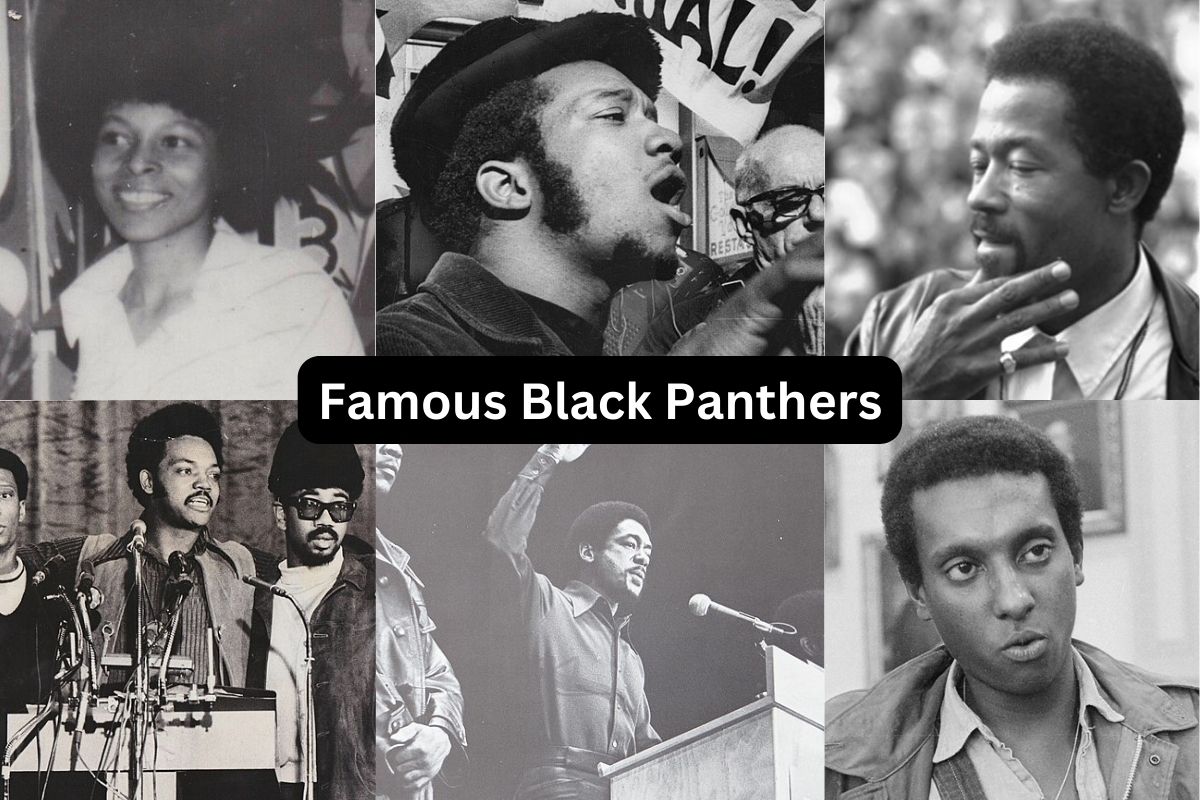The Black Panther Party, officially known as the Black Panther Party for Self-Defense, was a revolutionary African-American organization that emerged during the Civil Rights Movement in the United States.
Founded in 1966 by Huey P. Newton and Bobby Seale in Oakland, California, the Black Panther Party sought to challenge systemic racism, police brutality, and social injustice through community organizing and self-defense.
The party’s ideology was rooted in the principles of black self-determination, socialist politics, and armed self-defense.
The Black Panthers believed in the necessity of empowering black communities to address social and economic issues, and they organized a range of community-based programs to provide assistance and resources to underserved communities.
The Black Panther Party is often associated with their iconic visual symbol, the black panther logo, as well as their militant stance and confrontational rhetoric.
They emphasized the importance of self-defense and openly carried firearms, which drew attention and controversy. The party’s confrontations with law enforcement and clashes with political opponents contributed to their reputation as a radical and provocative organization.
Despite its relatively short lifespan, the Black Panther Party had a profound impact on the Civil Rights Movement and left a lasting legacy. Their militant activism, community programs, and commitment to racial equality continue to inspire and influence subsequent movements fighting against racial injustice and social inequality.
Famous Black Panthers
1. Huey P. Newton
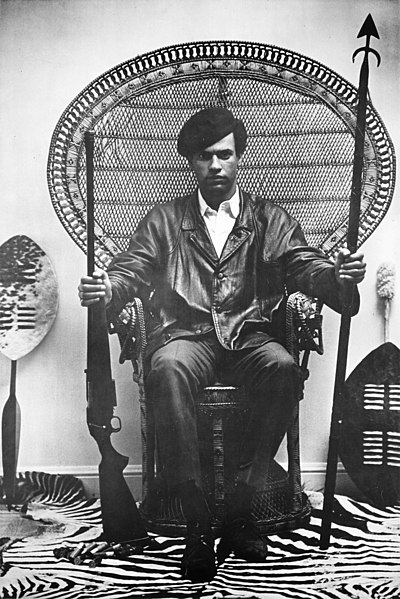
Huey P. Newton (1942-1989) was a prominent figure and co-founder of the Black Panther Party. He was an African-American political activist and revolutionary who played a significant role in the Civil Rights Movement.
Newton advocated for self-defense and community empowerment. He is remembered for his leadership in organizing community programs and initiatives, such as free breakfast programs for children, health clinics, and educational initiatives.
Newton’s ideologies and activism continue to inspire and influence movements fighting against racial inequality and social injustice.
2. Bobby Seale

Bobby Seale is an American political activist and co-founder of the Black Panther Party. Born in 1936, Seale played a crucial role in the formation and development of the party alongside Huey P. Newton.
As the chairman of the party, Seale was a prominent spokesperson and advocate for black empowerment and social justice.
Seale is known for his charismatic speaking style and his emphasis on community organizing. He helped establish community survival programs such as free breakfast programs, health clinics, and legal aid services for black communities.
Seale’s activism and advocacy focused on addressing systemic racism, police brutality, and socioeconomic inequality.
In addition to his work with the Black Panther Party, Seale has continued his activism and involvement in various social justice causes over the years. He has written books, lectured, and remained an influential figure in the ongoing struggle for racial equality and human rights.
3. Eldridge Cleaver
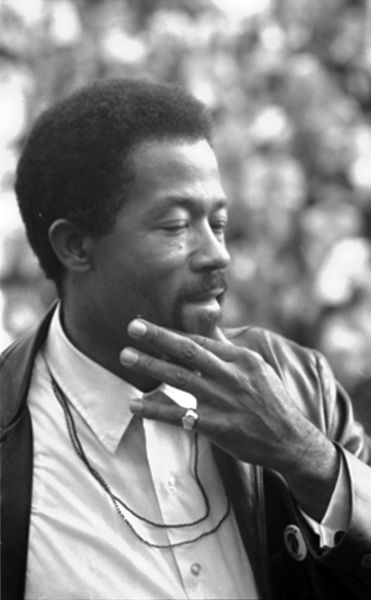
Eldridge Cleaver (1935-1998) was an American writer, political activist, and influential member of the Black Panther Party. Born in Arkansas, Cleaver became involved in the Civil Rights Movement and joined the Black Panther Party in the 1960s.
Cleaver is best known for his book “Soul on Ice,” which was published in 1968. The book, a collection of essays and memoirs, addressed issues of race, politics, and the struggle for African-American liberation.
“Soul on Ice” became a significant literary work that contributed to the discussions around black consciousness and the fight against systemic oppression.
Cleaver served as the Minister of Information for the Black Panther Party and was involved in various initiatives and protests aimed at combating racial injustice.
However, he also faced controversy and legal issues, including a conflict with other members of the party and a criminal history that led to his exile from the United States.
After leaving the Black Panther Party, Cleaver lived in several countries, including Algeria and France, before returning to the United States in the late 1970s. He continued his writing and activism, although his views and political affiliations evolved over time.
Cleaver’s contributions to the Black Panther Party and his literary works remain significant in the history of the civil rights movement in the United States.
4. Angela Davis
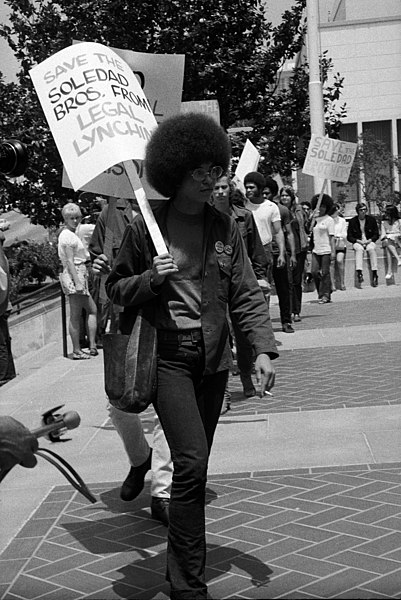
Angela Davis is an American political activist, scholar, and author who gained prominence in the 1960s and 1970s. Born in 1944, Davis became an influential figure in the Civil Rights Movement and a member of the Communist Party USA.
Davis is closely associated with the Black Panther Party, although she was never a formal member. She worked closely with the party and was involved in various social justice initiatives. Davis advocated for the rights of African Americans, particularly those who were incarcerated or facing legal persecution.
In 1970, Davis became widely known when she was charged with murder, kidnapping, and conspiracy in connection with a high-profile courtroom incident. The charges stemmed from her alleged involvement in an armed takeover of a courtroom to free three African-American prisoners. After being on the FBI’s Ten Most Wanted Fugitives list, Davis was arrested, put on trial, and acquitted of all charges in 1972.
Throughout her life, Davis has continued her activism, focusing on issues such as racial and gender equality, prison abolition, and global social justice. She has taught at various universities and written extensively on topics related to race, feminism, and political activism.
Angela Davis remains an influential figure in the fight against systemic oppression and inequality, with her ideas and work continuing to inspire generations of activists and scholars.
5. Fred Hampton
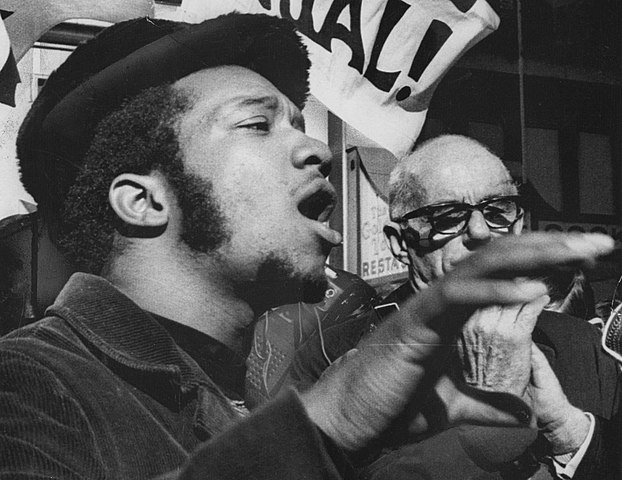
Fred Hampton (1948-1969) was a prominent leader of the Illinois chapter of the Black Panther Party. Born and raised in Chicago, Hampton played a crucial role in organizing and mobilizing the black community against racial injustice and inequality.
As the chairman of the Illinois chapter, Hampton worked to establish coalitions with other marginalized groups, including white working-class organizations and Puerto Rican activist groups.
He was a key figure in creating the Rainbow Coalition, which aimed to unite various racial and ethnic groups in the fight against systemic oppression.
Hampton’s leadership and activism drew attention from law enforcement agencies, particularly the FBI’s COINTELPRO program, which aimed to undermine and disrupt civil rights and black liberation movements.
On December 4, 1969, Hampton was tragically killed in a pre-dawn raid orchestrated by the Chicago Police Department in conjunction with the FBI.
Hampton’s legacy and his work in advocating for racial and economic justice continue to inspire activists and community organizers. He is remembered as a dedicated leader who sought to unite communities across racial lines and fight against the institutionalized oppression faced by African Americans.
6. Assata Shakur
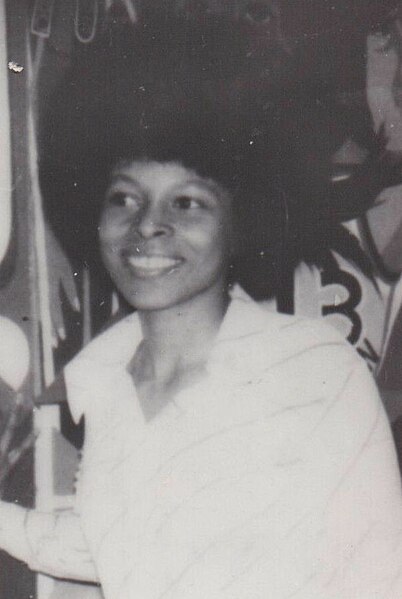
Assata Shakur, born JoAnne Deborah Byron in 1947, is a former member of the Black Panther Party and the Black Liberation Army. She is a political activist, author, and a prominent figure in the civil rights movement.
Shakur’s activism and involvement with revolutionary organizations brought her into conflict with law enforcement. In 1973, she was involved in a shootout with New Jersey State Troopers, resulting in the death of one officer and the injury of another.
Shakur was later convicted of murder and other charges in a highly controversial trial.
In 1979, Shakur escaped from prison and eventually found political asylum in Cuba, where she has lived since. She changed her name to Assata Shakur and continues to advocate for racial justice and human rights.
Shakur’s autobiography, “Assata: An Autobiography,” provides an account of her experiences, activism, and the circumstances surrounding her arrest and subsequent escape.
Shakur remains a polarizing figure, celebrated by some as a freedom fighter and revolutionary, while others view her as a criminal. Her case has become emblematic of the ongoing debates surrounding racial injustice and political repression in the United States.
The U.S. government still considers her a fugitive and has sought her extradition, but Cuba has refused to comply.
It is important to note that while some admire and support Shakur’s activism, others may have differing perspectives on her actions and the events surrounding her case.
7. Kathleen Cleaver
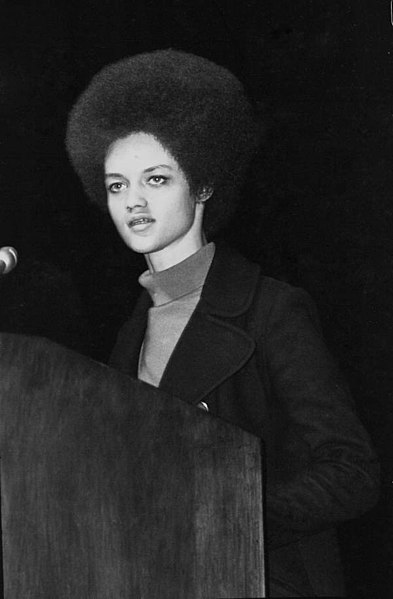
Kathleen Cleaver, born Kathleen Neal in 1945, is an American activist, lawyer, and former prominent member of the Black Panther Party. She played a significant role in the civil rights movement and was actively involved in the fight against racial inequality and social injustice.
Cleaver joined the Black Panther Party in the late 1960s and served as the Party’s Communications Secretary. She was responsible for communicating the Party’s messages and initiatives to the public and media.
Cleaver also played a crucial role in organizing events, rallies, and programs aimed at empowering the black community and challenging systemic oppression.
After the decline of the Black Panther Party, Cleaver continued her education and obtained a law degree. She worked as a lawyer and focused on issues related to civil rights, women’s rights, and racial justice. Cleaver’s activism extended beyond the United States, as she has been involved in international human rights efforts.
Throughout her life, Cleaver has remained an influential figure in advocating for social justice and equality. She has written extensively on her experiences and the history of the Black Panther Party.
Cleaver’s contributions to the civil rights movement and her ongoing commitment to activism have made a lasting impact on the fight against racial discrimination and systemic oppression.
8. Bobby Rush
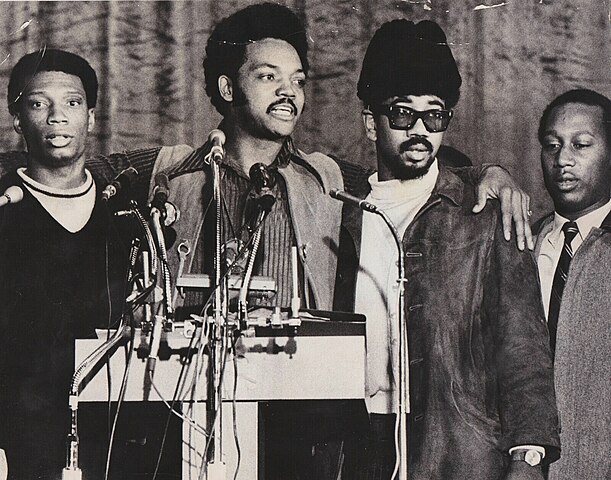
Bobby Rush, born in 1946, is an American politician and civil rights activist who was also a member of the Black Panther Party. He is best known for his role as a U.S. Representative for Illinois’ 1st congressional district.
Rush was an active member of the Black Panther Party during the late 1960s and early 1970s. He was involved in community organizing and advocacy efforts aimed at combating racial inequality and improving the lives of African Americans in Chicago.
In 1992, Rush successfully ran for the U.S. House of Representatives, representing Illinois’ 1st congressional district. He has been reelected numerous times and continues to serve as a Congressman.
Throughout his political career, Rush has been a vocal advocate for civil rights, social justice, and economic equality. He has championed issues such as affordable housing, healthcare access, and criminal justice reform. As a former Black Panther and a lifelong activist, Rush has used his platform in Congress to advance policies that address systemic racism and promote equality.
Bobby Rush’s journey from being a member of the Black Panther Party to becoming a respected Congressman reflects his long-standing commitment to fighting for the rights and well-being of marginalized communities.
9. Elaine Brown
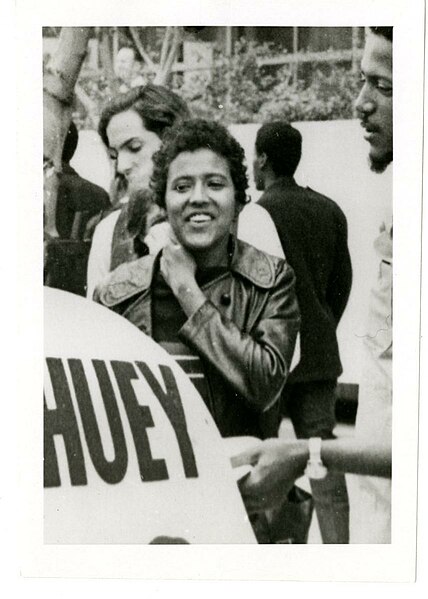
Elaine Brown, born in 1943, is an American activist, author, and singer who was the first woman to lead the Black Panther Party. She played a significant role in the civil rights movement and made notable contributions to the party’s activities.
Brown joined the Black Panther Party in the late 1960s and quickly rose through the ranks. In 1974, she became the Chairwoman of the Black Panther Party, succeeding Huey P. Newton.
As the leader of the party, Brown focused on community organizing and social programs aimed at addressing poverty, education, and police brutality.
Under Brown’s leadership, the Black Panther Party expanded its community-based initiatives, including free breakfast programs, health clinics, and educational programs. She emphasized the importance of self-determination and empowerment within black communities.
After leaving the Black Panther Party, Brown continued her activism and worked on various social justice causes. She has been involved in issues such as prison reform, women’s rights, and electoral politics. Additionally, Brown is a talented singer and has released several albums.
Elaine Brown’s leadership within the Black Panther Party and her subsequent activism have made a lasting impact on the fight for racial justice and equality. She remains an influential figure, known for her commitment to social change and her dedication to empowering marginalized communities.
10. Stokely Carmichael (Kwame Ture)

Stokely Carmichael, later known as Kwame Ture, was a prominent civil rights activist and leader in the Black Power movement. He was born in Trinidad and Tobago in 1941 and later migrated to the United States.
Carmichael rose to prominence as a leader within the Student Nonviolent Coordinating Committee (SNCC) during the Civil Rights Movement. He played a significant role in organizing protests and voter registration drives, advocating for racial equality and challenging systemic racism.
Carmichael is famously known for popularizing the term “Black Power,” which became a rallying cry for the Black liberation movement. He believed in the need for black self-determination and encouraged black people to assert their political and economic power to bring about change.
In the late 1960s, Carmichael became more aligned with Pan-Africanism and socialism. He changed his name to Kwame Ture in honor of Kwame Nkrumah, the first president of Ghana, and Ahmed Sékou Touré, the first president of Guinea.
Throughout his life, Ture continued his activism and advocacy for black liberation. He traveled extensively, giving speeches and spreading his message of self-determination and Pan-African unity. Ture’s ideas and leadership had a profound impact on the Black Power movement and influenced subsequent generations of activists.
Stokely Carmichael’s transition to Kwame Ture and his commitment to the global struggle for liberation reflect his lifelong dedication to challenging racial oppression and fighting for equality.
